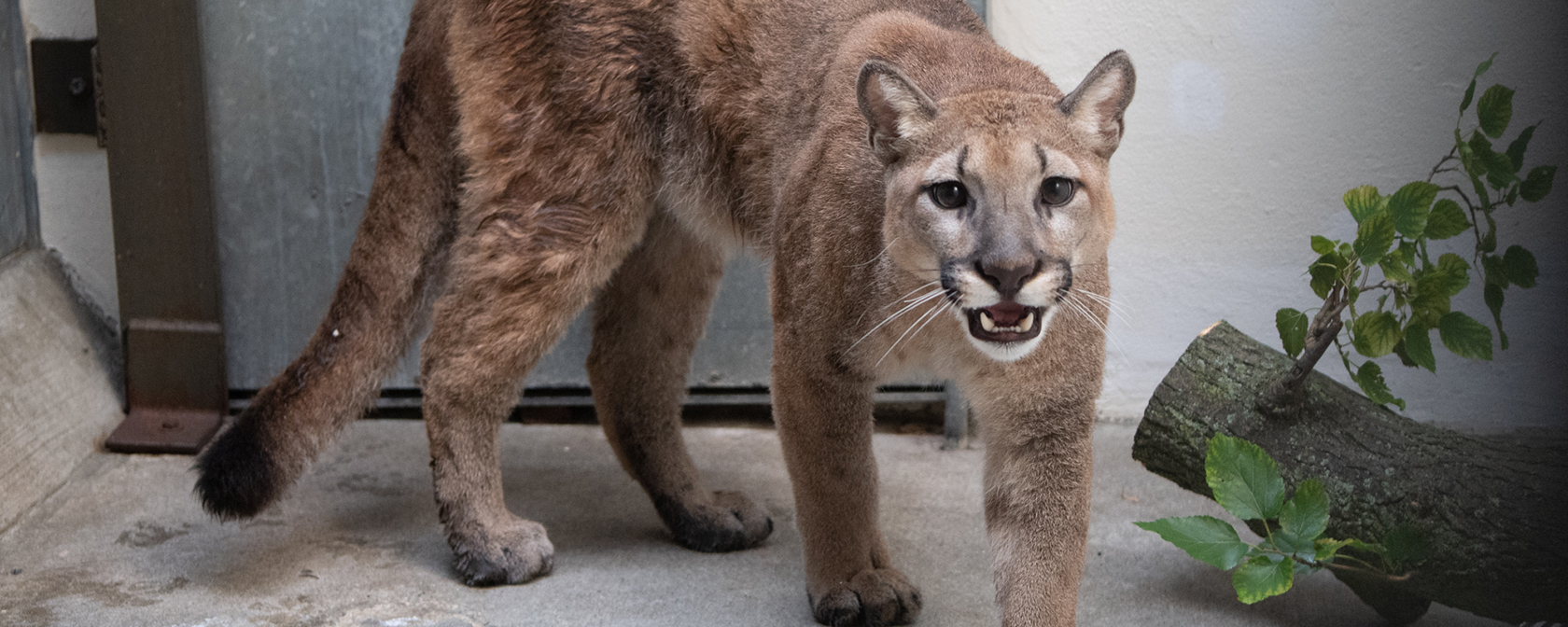By Sara Amundson and Kitty Block
On Sunday, Hurricane Ida slammed into the Gulf Coast, 16 years to the day after Hurricane Katrina’s landfall. Our Animal Rescue and Response team moved toward the strike zone, ready to assist animals in need. Bringing together supplies, equipment and personnel to support emergency response agencies in their relief efforts, we operate within a web of agreements that bind us to disaster response entities at all levels. It’s critical for us to be ready to go the moment authorities ask for our help.
Hurricane Ida grew in intensity quickly, but as it formed and approached, we worked with Greater Good Charities to co-sponsor a flight taking homeless shelter animals in Louisiana out of the storm’s path before it hit. We brought the animals to the San Diego Humane Society, a member of our shelter and rescue partner program. Such pre-storm response helps ensure the safety of animals awaiting adoption in threatened areas while freeing up space, shelter staff members and resources that organizations require to respond to their community’s needs during and after a storm—which often includes providing a temporary home for pets while their guardians secure a safe living situation.
When it comes to disaster, everyone knows to expect the unexpected. Those who rescue animals do more than simply expect it—they plan for it. They train, they mobilize resources, they collaborate. That critical preparation is the foundation for the flexibility that each new crisis requires.
The preparation principle has shaped the work of our Animal Rescue and Response team, which responds to hurricanes, wildfires, floods, and other dangerous situations, along with cases of cruelty and endangerment involving individual animals. The HSUS has been doing such work since the 1970s, and over the past five years alone, we’ve deployed well over 100 times.
The past week has seen our teams helping in critical situations far beyond the Gulf Coast. In Tennessee, our team provided supplies and caring hands to help the animals and the overwhelmed staff at the Waverly Animal Shelter who were affected by deadly floods. In New York City, the team helped a cougar being kept as a “pet.” We received a request to help remove an 11-month-old, approximately 80-pound, female cougar from a home in the Bronx. That required a complex collaboration with authorities, including the New York State Department of Environmental Conservation, the New York City Police Department, and the Bronx Zoo. Our team was at the scene when the homeowner surrendered the cougar, helped coordinate her safe removal and ensured her safe transportation to the Bronx Zoo, where she received excellent care from veterinarians and caregivers. The cougar is now on her way to Turpentine Creek Wildlife Refuge, an accredited sanctuary in Arkansas, where she will receive lifelong care in an environment more suited to her needs. (Her situation was another reminder of why we’re also fighting to pass the Big Cat Public Safety Act.)
Whether it’s helping one animal in a Bronx home, or hundreds of animals in the wake of a hurricane, the key to success is being prepared. That’s why, in the aftermath of Hurricane Katrina and the forced abandonment of animals that was imposed by authorities at that time, we led the campaign to pass the Pet Evacuation and Transportation Safety (PETS) Act to require that disaster response agencies seeking federal funds prepare disaster plans encompassing the needs of animals. We’re still working to strengthen the capacity of those agencies through our partnerships and we’re pressing for passage of the Providing Responsible Emergency Plans for Animals at Risk of Emerging Disasters (PREPARED) Act (H.R.1442) and USDA’s issuance of the emergency contingency rule. Both this bill and USDA’s proposed regulations would ensure that commercial animal dealers, exhibitors and research facilities who are regulated under the Animal Welfare Act develop contingency plans for the animals in their care during disasters. During Congress’ August recess, we worked with Rep. Dina Titus, D-Nev., to mobilize a bipartisan letter signed by 115 representatives urging USDA to reinstate its long-delayed rule.
Even if all such agencies were fully prepared, however, there would still be a role for our Animal Rescue and Response Team. Disasters and emergencies are unpredictable, and it’s our job to respond effectively. We’re grateful to supporters and allies who stand with us as we try to help animals and people through some of the toughest moments they’ll ever go through—and we’re grateful to be able to make a difference in these crises.
Kitty Block is President and CEO of the Humane Society of the United States




